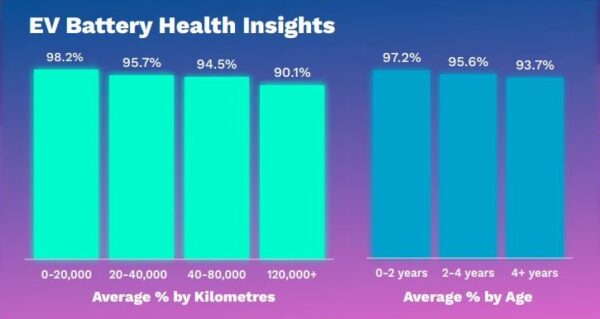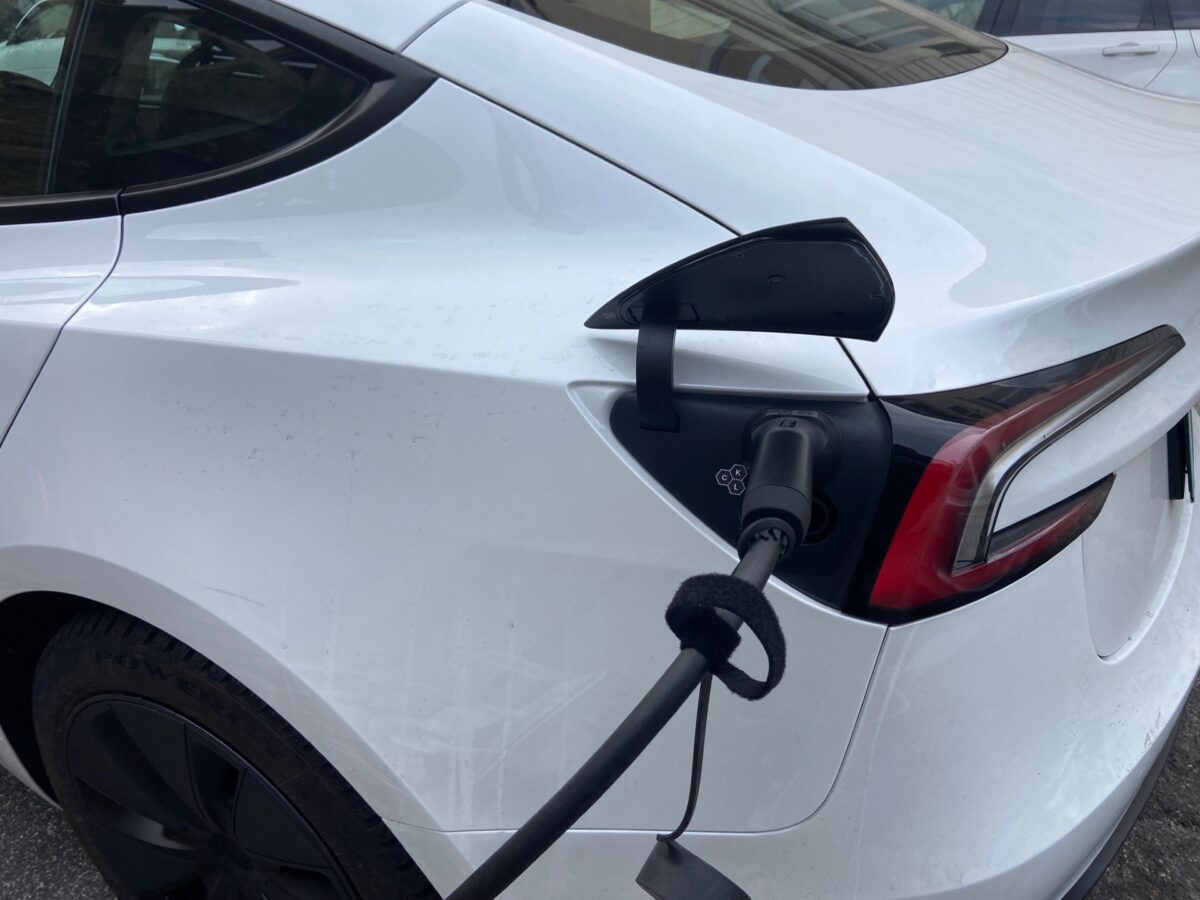Data published by automotive auction house Pickles shows that batteries in electric vehicles (EVs) are lasting much longer than many believe, even those in older models and cars that have travelled considerable distances.
The company tested more than 250 used EVs and found an average 90.1% battery retention in vehicles having travelled 120,000 kilometres – 10 times the distance covered by the average Australian car each year.
Battery health of EVs that have travelled between 40,000 and 80,000 kilometres averaged 94.6% of their original battery capacity while that increased to 98.2% for those vehicles that have travelled less than 20.000.
Brendon Green, Pickles General Manager, Automotive Solutions, said the results are in line with manufacturer expectations, but they are well ahead of the minimums outlined in warranties.
“The batteries aren’t degrading quite as fast as what consumers had first thought,” he said, noting that the results paint “a very positive picture regarding general used EV battery health.”

The testing, which has involved more than 250 vehicles supplied to Pickles across Australia’s major capital cities since October 2023, also took into account age and shows those EVs older than four years still had “at least 93%” of their original battery capacity.
Pickles said the results are reflected across brands at different price points and countries of origin, with relative EV newcomers like BYD and Hyundai comparing very well with established brand Tesla.
Hyundai EVs were the best performers in the tests with an average 99.31% battery health over an average distance travelled of 29,237 km and age of 39 months. BYD followed closely with 98.62% battery health over 15,619 km and 17 months, with Tesla at 93.3% over 42,263 km and 27 months.
The testing process has been developed primarily to help used EV buyers but Pickles said the information will also be of great value to the new car market, “reinforcing buyer confidence through a better understanding of long-term battery health.”
It also adds weight to the ability of EVs to play an increasing role in Australia’s energy transition with the recent release of the National Roadmap for Bidirectional EV Charging.
The paper, commissioned by the Australian Renewable Energy Agency, notes widespread uptake of bidirectional charging could “materially reduce electricity costs for consumers and accelerate national emissions reduction.”
Although bidirectional EV charging is not yet widely available in Australia, the roadmap lays the foundation on which industry and government stakeholders can identify and adopt policy settings and strategy initiatives to realise the benefits of the technology.
ARENA Chief Executive Officer Darren Miller said bidirectional charging, and particularly vehicle-to-grid (V2G) technology, means EVs won’t just be vehicles; they’re the future of distributed energy storage and represent a game-changing opportunity for Australia’s energy future.
“By the early 2030s, the battery capacity of our electric vehicle fleet is projected to outstrip all other forms of energy storage in the National Electricity Market,” he said. “With estimates suggesting 1.5 million EVs on Australian roads by 2030, even 10% of those adopting V2G could meet 37% of the NEM’s total storage needs.”
EV sales in Australia continue to increase with nearly one in 10 new cars sold in the country now electric. A record 91,292 EVs were sold in Australia in 2024, an increase of 4.7% on 2023.
This content is protected by copyright and may not be reused. If you want to cooperate with us and would like to reuse some of our content, please contact: editors@pv-magazine.com.









By submitting this form you agree to pv magazine using your data for the purposes of publishing your comment.
Your personal data will only be disclosed or otherwise transmitted to third parties for the purposes of spam filtering or if this is necessary for technical maintenance of the website. Any other transfer to third parties will not take place unless this is justified on the basis of applicable data protection regulations or if pv magazine is legally obliged to do so.
You may revoke this consent at any time with effect for the future, in which case your personal data will be deleted immediately. Otherwise, your data will be deleted if pv magazine has processed your request or the purpose of data storage is fulfilled.
Further information on data privacy can be found in our Data Protection Policy.